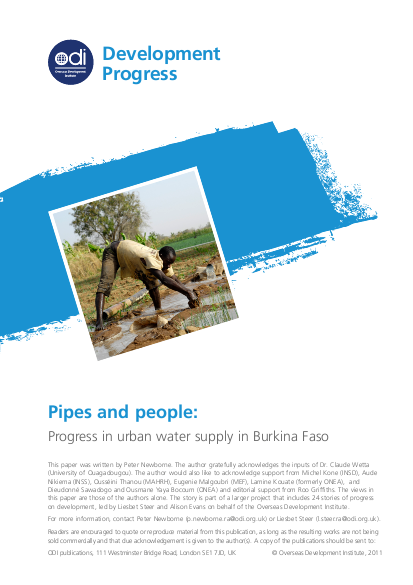
Since 2000, improved production and distribution of water in Burkina Faso has led to extended coverage of nearly 2 million people in the country’s four principal urban centres. In the capital, Ouagadougou, the number with access to the network more than doubled in six years. Progress has been achieved as a result of the strengthened capacity and performance of the National Office of water and Sanitation (ONEA) – the utility responsible for urban water supply in Burkina – as well as through the support of government and development partners.
Based on progress achieved to date, a new phase of investment in urban water supply in Burkina has begun. Over the period 2009-2015, this will expand distribution and access in three cities in Burkina – Bobo-Dioulasso, Kodougou and Dédougou – as well as further extending water distribution in Ouagadougou.
Despite significant achievements, challenges remain relating to measuring performance and ensuring equity, particularly for low-income households. Government policy recognises the social, as well as economic, nature of the issue of urban water, as well as the need to investigate low-cost solutions in providing water services to periurban districts, in line with poverty reduction goals. However, ONEA still needs to further develop and deepen its social policy, including organising its client data, for example according to customer income, so as to take greater account of the differing situations of the people it serves.
Resource collections
- UN Habitat - Urban Response Collection
- Urban Response - Urban Crisis Preparedness and Risk Reduction
- Urban Response Collection - Community Engagement and Social Cohesion
- Urban Response Collection - Economic Recovery
- Urban Response Collection - Environment and Climate Change
- Urban Response Collection - Housing, Land and Property
- Urban Response Collection - Urban Crisis Response, Recovery and Reconstruction
- Urban Response Collection - Urban Resilience